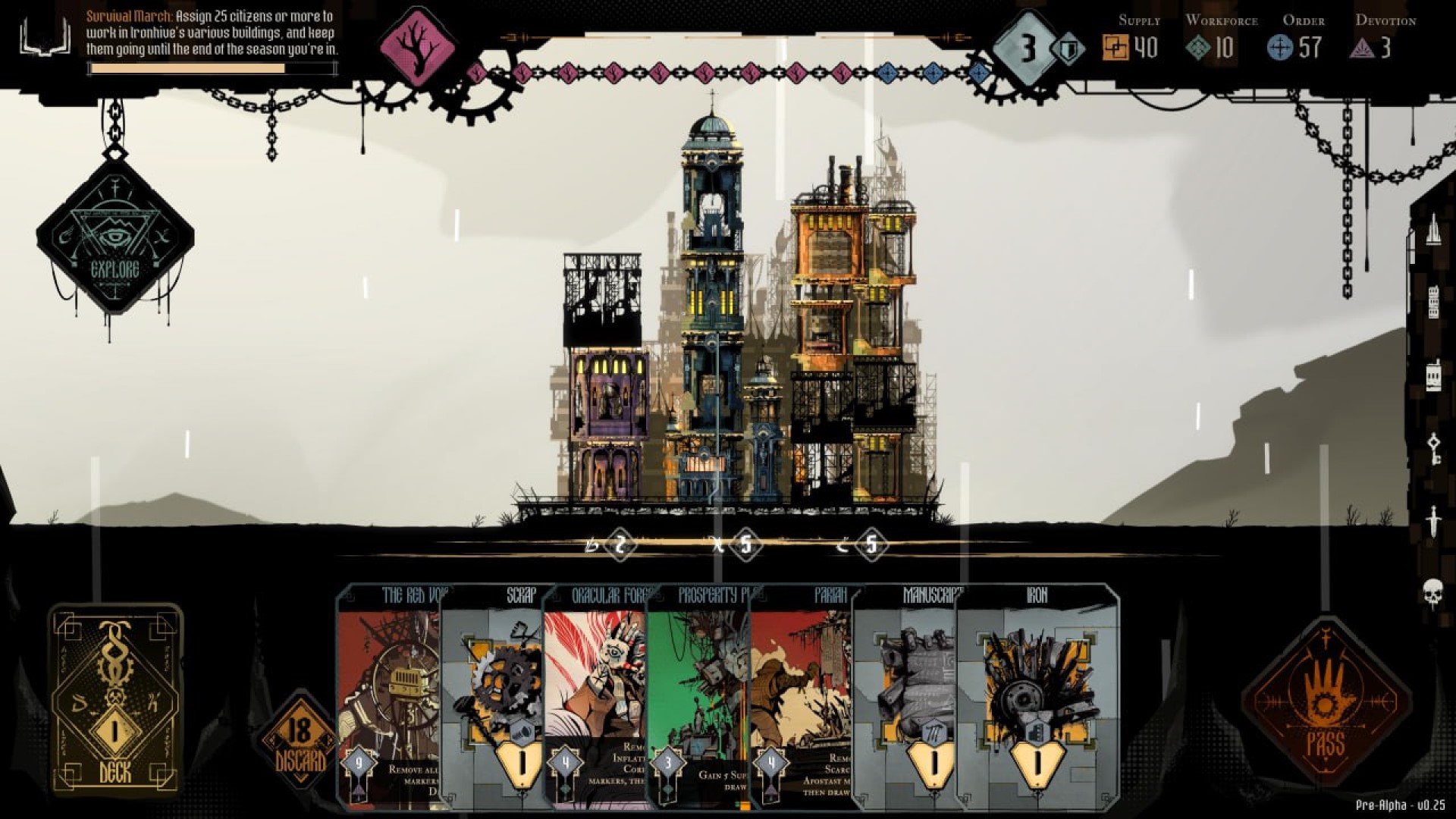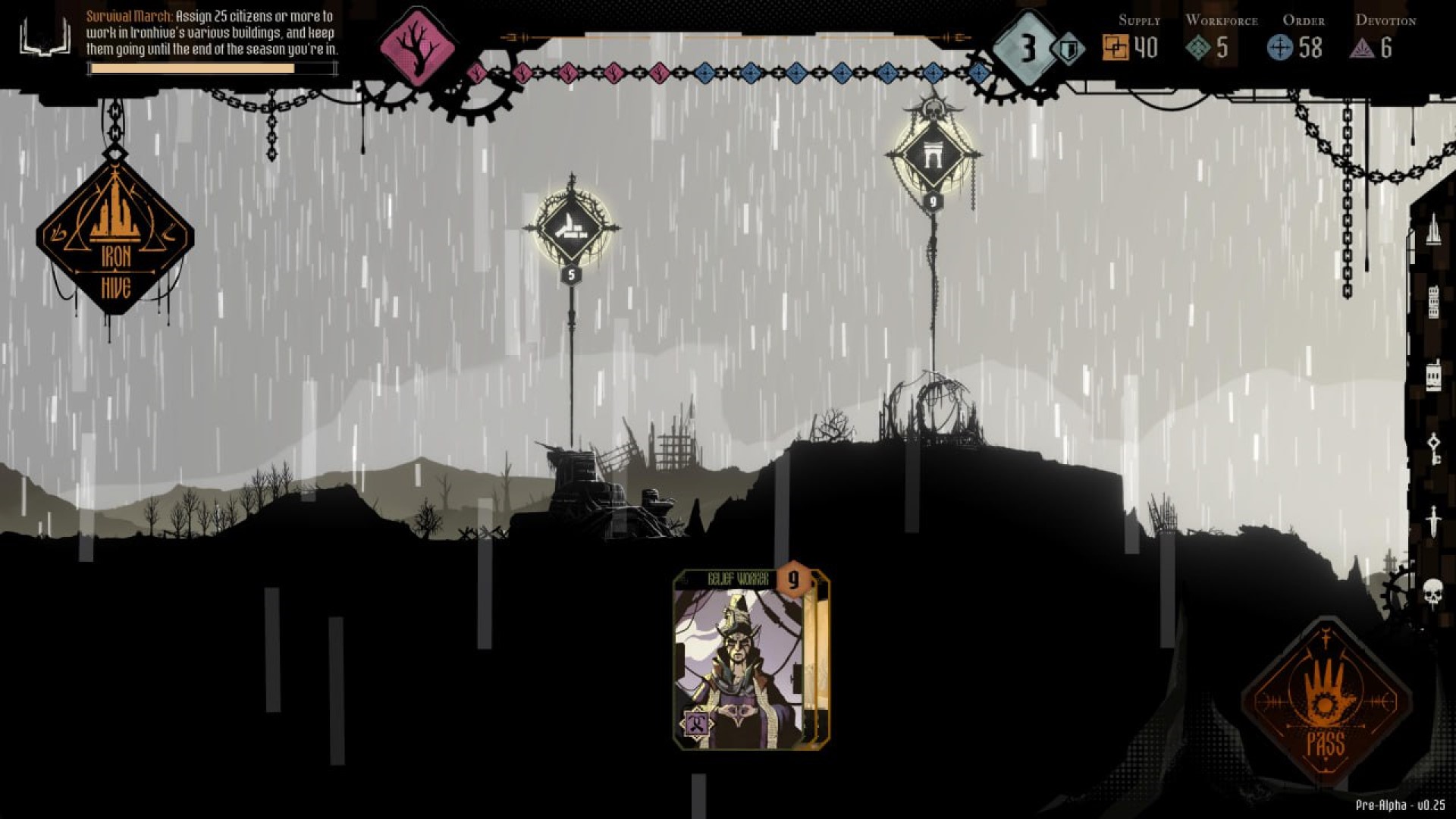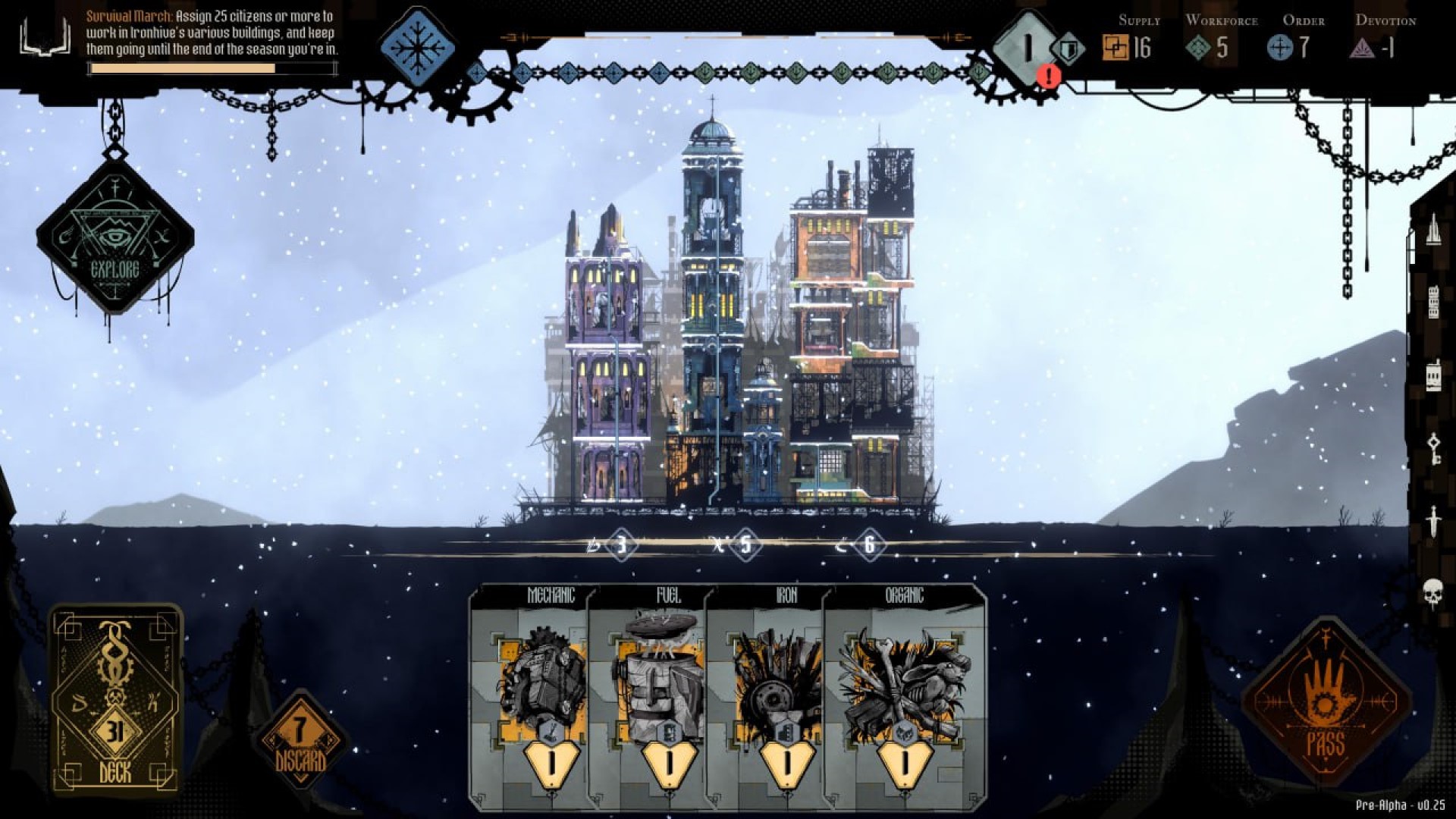Ironhive turns colony survival into deck-building and is inspired by one of the best tabletop world-building games around
Use cards to keep the hive alive in this upcoming city survival game.
In a genre as oversatured as city builders, it's sometimes hard to find original concepts, but Ironhive is attempting to reinvent the tried-and-tested formula through deck-building. In this colony survival game, you're tasked with overseeing the Iron Hive; a rusting bastion where the last remnants of humanity huddle together against the end of the world.
As the Iron Lord, you've got to balance your people's survival with staying in their good graces, lest they depose you Frostpunk-style. The arrival of each new season brings its own challenges. Narrative events require you to make tricky moral choices about the future of your city, while you'll need to spend your ever-dwindling number of cards wisely to make sure you don't exhaust all your possible actions.
It's a streamlined concept; turning citizens and materials into cards that you play in order to take action and manage your metal metropolis. Another intriguing aspect of Ironhive is the inspiration it takes from a game called The Quiet Year. If you've never heard the name, it's a tabletop world-building game all about, well… the quiet between storms. You've survived the apocalypse and now have a brief window to rebuild before the next one arrives. Will what you make manage to endure it?



It's a concept that maps super well to a city survival videogame, and games like Frostpunk already illustrate how powerful that tension can be—building something with the knowledge that it all might be destroyed before long. Still, despite its greatness, Frostpunk lacks The Quiet Year's cool card mechanics.
While Ironhive's cards aren't strictly the same—in The Quiet Year they represent seasons and help forge a narrative—its events are inspired by the tabletop game, posing players with tough choices that add more pressure to walking the tightrope of keeping your subjects happy while ensuring the city survives.
Another similarity is that exhausting your cards means the end of the game. Considering cards represent materials and population in Ironhive, running out of them is understandably very bad. You'll need to source new cards as soon as possible if you want to continue taking actions and keep the lights on.
As Chris is always highlighting on the site, it's exciting to see new and unconventional takes on the city builder genre, and I'm curious to see how well deck-building and city management align. While Ironhive doesn't have a release date yet, you can stay informed via the Critical Reflex website.
Keep up to date with the most important stories and the best deals, as picked by the PC Gamer team.

Sean's first PC games were Full Throttle and Total Annihilation and his taste has stayed much the same since. When not scouring games for secrets or bashing his head against puzzles, you'll find him revisiting old Total War campaigns, agonizing over his Destiny 2 fit, or still trying to finish the Horus Heresy. Sean has also written for EDGE, Eurogamer, PCGamesN, Wireframe, EGMNOW, and Inverse.

